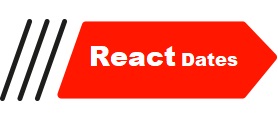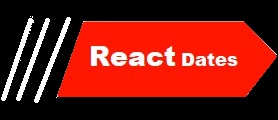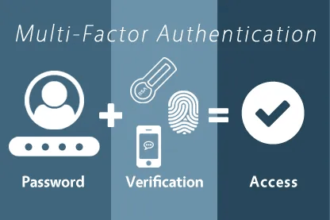Abeka is one of the most popular homeschool curriculum programs today. Used by thousands of homeschool families and Christian schools, this program has been around for decades. In this article, we’ll look at what they offer: online blended learning and offline hard-cover learning.
We’ll also discuss their accredited options before looking at good alternatives to Abeka if you want to look around.
Let’s get started!
What is the Abeka Curriculum?
Abeka is a Christian homeschool curriculum that has existed for a few decades.
This program, which I used when I was homeschooled in Australia 30 years ago, has gone from producing a paper-based homeschool curriculum to online accredited video lessons.
Their video lessons can be used in conjunction with physical workbooks.
This combination is called the blended learning approach – using online and offline learning methods.
Options with Abeka Format
If you’ve decided on Abeka, you need to make more decisions about what format you want to use.
Online Options
Abeka offers online teacher-led videos.
This means that while your children can do workbooks, they can be taught by an online teacher. This means less work for parents at home.
Abeka offers two notable online options: accredited Abeka Academy and unaccredited (Abeka Homeschool).
The unaccredited option means you don’t get official recognition for your children’s course of study with an official accrediting body.
Then, there’s the accredited option, which doesn’t cost extra. If you’re doing this option, you get official recognition for study.
Does accreditation matter?
To families doing short-term homeschooling, an accredited course of study (which means you’re studying with an online school – not technically homeschooling) can be helpful.
This is because you get a transcript you can show official schools as evidence of your children’s study while away from school.
Another reason parents like accreditation is if their children are going to college.
But this is optional, too, as parents can create valid transcripts to show college.
However, some parents feel it’s more ‘proper’ to show an accredited transcript from an accredited faculty member to a college.
Offline/Boxed/Paper-Based
Then, there are offline options that come with Teacher’s Manuals.
This means a parent teaches the curriculum with a scripted text.
This is a lot more time-intensive than open-and-go homeschool curriculum options.
But if you’re a parent who wants to keep homeschooling offline, this could be for you.
As detailed above, this option is unaccredited and more affordable than online teacher-led video courses.
Abeka is Traditional
Abeka follows a more traditional homeschool approach.
This means it’s most similar to a school-at-home homeschooling method.
This approach may suit people who want a school-like approach, but it will only suit some.
For example, suppose you want a flexible curriculum and don’t want to modify the program drastically yourself. In that case, you may find Abeka tricky to use.
Abeka is also used in Christian schools.
As such, the program has a lot of work in it and lots of reviews.
The course can seem like it has unnecessary busywork for children who don’t need this repetitive material.
Many parents who insist on doing everything in the curriculum may be burned out if they try to do everything.
But, if you’re willing to modify the course to suit your student, it can work for you.
If your child loves a lot of repetition and likes to learn in a spiral manner, this curriculum could be for you.
Alternatives to Abeka
Abeka is one of the most popular homeschool curriculum programs today.
But many other great options are compared to Abeka. Let’s take a look at a few.
BJU Press
This is another Christian homeschool curriculum that teaches with a solid biblical worldview.
This program is the curriculum that is most similar to Abeka’s.
It uses the blended learning approach (offline workbooks with online teacher-led video lessons). Also, it offers offline teacher’s manuals so parents can teach it themselves.
BJU Press is slightly more affordable than Abeka. They also have shorter video lessons, so children stay engaged longer.
But BJU Press has been around for fewer decades than Abeka.
This program also offers accredited and unaccredited options at no extra cost.
Sonlight
Solnight is a literature-based homeschool curriculum delivered to parents in a massive box to their doorstep.
This paper-based curriculum uses good-quality books and engaging narrative texts to keep students engaged and teach them simultaneously.
This program is a Bible-based curriculum, but they offer a secular homeschool curriculum that’s also literature-based called Bookshark.
Memoria Press
Memoria Press is quite a conservative homeschool curriculum.
It’s less traditional (like Abeka is) and has a more classical homeschool curriculum. It uses the classical homeschooling method to teach the following:
- foundational knowledge in the grammar stage (primary years),
- sound argumentative and logical critical thinking skills in the logic stage (middle school) and
- gracious and well-considered responses and speaking skills in the rhetoric stage (high school).
On top of this, students learn to debate and learn about the ‘for’ and ‘against’ of many arguments.
They learn a Latin curriculum, putting them in good stead to learn the English language in much more detail than most children today.
A Gentle Feast
A more Charlotte Mason curriculum compared to Abeka is A Gentle Feast.
This program uses a gentle way of learning.
Children are educated primarily through living books (educational storybooks), focusing on developing good habits, a love for nature, and a focus on good quality work.
A Gentle Feast is a much more family-style homeschool curriculum compared with Abeka.
The family comes together in the morning to fellowship and learn lessons collaboratively.
However, the Charlotte Mason homeschooling method is more flexible, which will suit some families more but not others.
The Bottom Line
Abeka has been successfully used by homeschool parents who want a reliable Christian homeschool curriculum for many decades. This program certainly provides a gospel-centered way of learning that will agree with many parents. But, the program can be rigid and, therefore, not a fit for every family. To learn more about homeschool methods, do my homeschool method quiz here.
Also, SUBSCRIBE to my YouTube channel, How to Homeschool, if you want to know more about how to homeschool successfully today.
Goodbye, and God bless.







